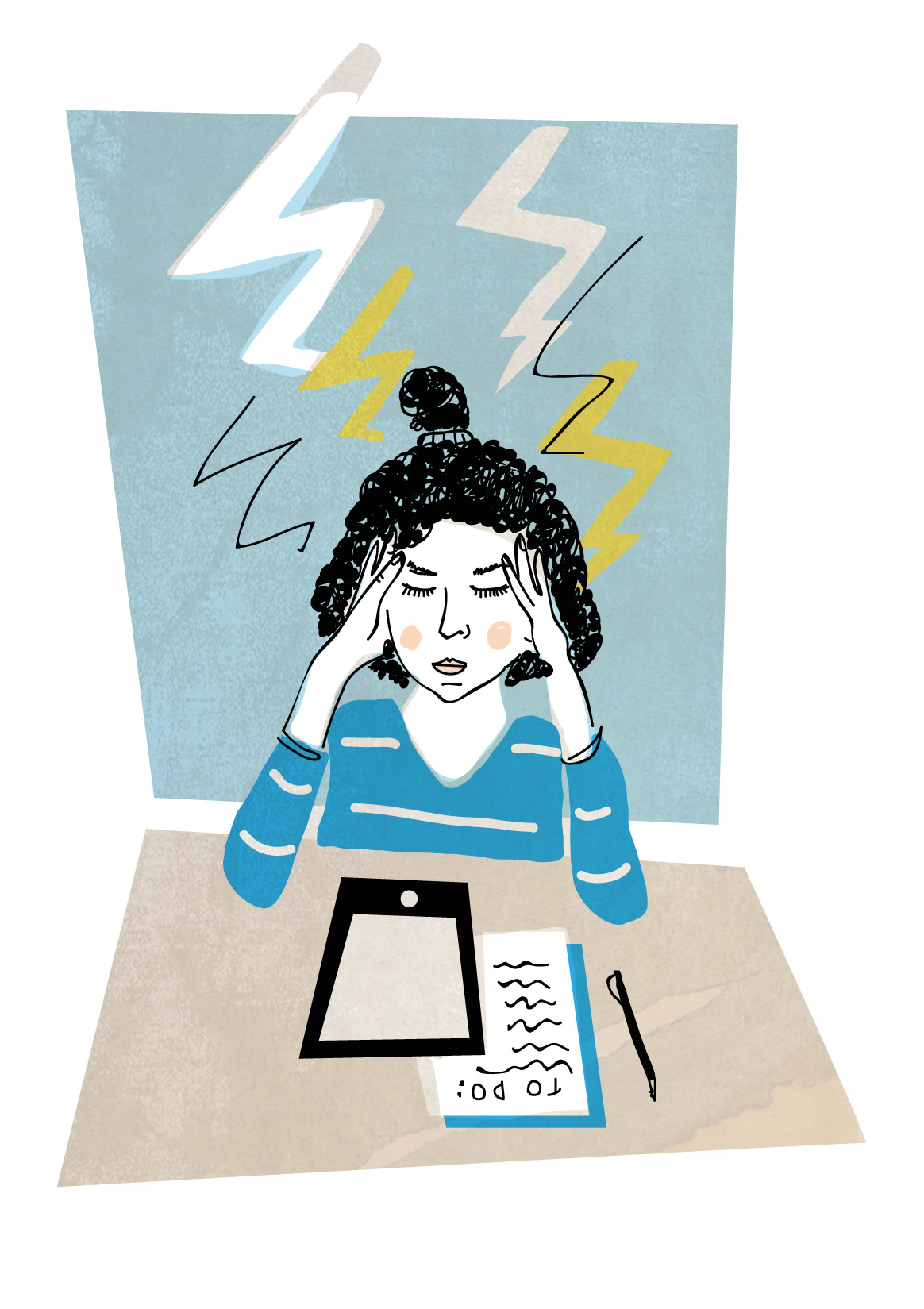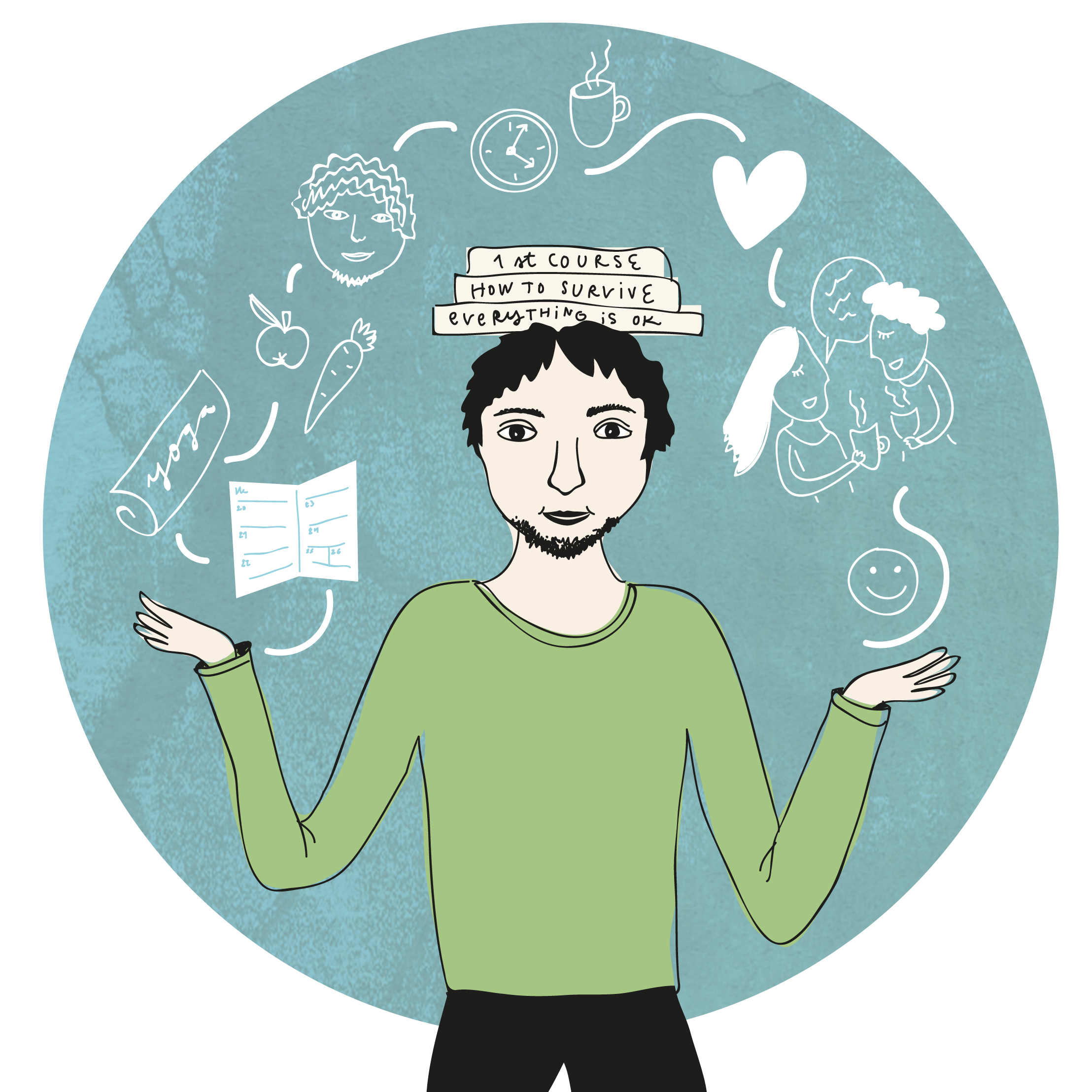Stress-management (self-study material)
Topic outline
-
We all feel stressed sometimes. Maybe you’ve noticed your stress level rising as a homework deadline or exam week approaches. Or maybe you have just begun studies and are wondering if you’ll find your place at the school with new friends in your first year. Possibly you’ve felt pulled for some time now in conflicting directions between studies, work and human relationships

Stress is a part of life, and few if any get through university studies without feeling stressed out at some point. Moderate stress, in the best cases, can help us to accomplish things and achieve our goals. When the level of stress is in balance, one can usually the amount of sleep and free time needed in order to recover. For some students, however, stress may be prolonged or almost never-ending.
It is important to recognise your own state of stress and find ways to recover from stress that work for you. Long-term (or chronic) stress can undermine our well-being in many ways. Stress can also impact our performance in studies, and continual levels of high stress is associated with a poor success rate in studies. This self-study material is meant to provide you with tools for becoming aware of your own stress and help you unwind and recover from it.
The self-study material consists of two main sections and one supplementary section:
Section 1. ‘Stress: How to recognise it’. In this part, we go through what stress actually is and how it can be identified. The section tells how stress affects the body, mind, emotions and behaviour. The section gives you a chance to reflect on what warning signs apply to you in particular to let you know when your stress level is high. The section also talks about the connection between stress and alertness and how to listen for and perceive your own state of alertness. Supplementary material is also available; it tells about how stress affects brain functioning and the processing of information.
Section 2. ‘Recovery and resources’ uses exercises to look into your own stress, recovery and resources in more detail. To start off, you make an inventory of what kinds of demands may be factors behind your stress. Then you explore further the kinds of emotions that stress causes, and whether a background factor is that you are living a life that perhaps does not correspond to your own values. The exercises include opportunities to think about your strengths and resources as well as the kinds of methods you use in daily life to recover.
The final section contains questions to help you draw together what you have learned about your own stress, recovery and resources over this course of self-study. The questions will help you to see whether you should go through some parts of the material again and what aspects of managing stress you should pay particular attention to in the future.
Stress management is an art that improves with practice. Stress management can give you skills that you can use after graduation in your working life. So why not learn about your own stress and get training in this highly important life skill.

